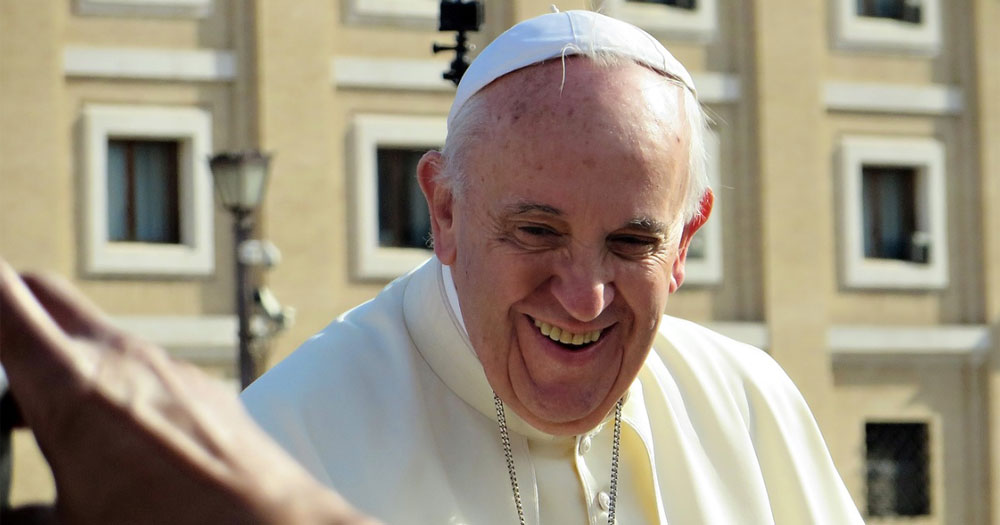Pope Francis has declared the death penalty inadmissible in all cases, the Vatican announced on Thursday, Aug. 2, 2018.
This definitive shift in Roman Catholic teaching could put pressure on lawmakers and politicians around the world.
This was after a new draft of the Catechism of the Catholic Church, a collection of beliefs for the world’s 1.2 billion Catholics, was issued by the body in charge of church doctrine.
In May, Francis approved the change.
The revision says the church would work “with determination” for the abolition of capital punishment worldwide, where the death penalty is described as “an attack” on the “dignity of the person”.
Previously, the catechism stated that the death penalty could be used in some cases, "if this is the only possible way of effectively defending human lives against the unjust aggressor".
The teaching on death penalty has been updated before
It is extremely rare for the catechism to be changed.
But the catechism has been updated before, with regards to the death penalty.
The 1992 catechism noted that governments had the right to apply the death penalty under specific circumstances, but only when "bloodless means" are not "sufficient to defend human lives against an aggressor" or "to protect public order".
The 1997 text states that the church traditionally "does not exclude recourse to the death penalty", but with the caveat that it acknowledges the death penalty as legitimate only "if this is the only possible way of effectively defending human lives against the unjust aggressor”.
However, the 1997 text concludes that "the cases in which the execution of the offender is an absolute necessity are very rare, if not practically nonexistent".
Not a new teaching
Hence, this teaching on the death penalty builds on the instructions of Francis’ two immediate predecessors, John Paul II and Benedict XVI.
The late John Paul II spoke of his desire for a consensus to end the death penalty, which he called "cruel and unnecessary".
The latest amendment is a reflection of this pope’s unconditional opposition to the death penalty, while affirming his vision of a merciful church.
Francis had previously made two arguments during his trip to the United States in 2015 that specifically spoke to the American context.
He also wrote a detailed letter that year to the International Commission against the death penalty, arguing that capital punishment “does not render justice to the victims, but rather fosters vengeance”.
He pointed out the death penalty is illegitimate because many convictions have later been found to be in error and have been overturned, and because executions of prisoners in some states have been badly botched.
Abolishing the death penalty has been one of Francis’ top priorities for many years, along with saving the environment and caring for immigrants and refugees.
He added: “I am convinced that this way is the best, since every life is sacred, every human person is endowed with an inalienable dignity, and society can only benefit from the rehabilitation of those convicted of crimes.”
Possible backlash
The move could also set off a backlash among traditional Catholics.
Francis is perceived as inclined to change or compromise church teaching on issues, such as permitting communion for Catholics who have divorced and remarried without getting a church annulment.
Francis’ decision is likely to put many American Catholic politicians in a difficult position, especially those who have presided over executions.
Catholic teaching on capital punishment has produced outcomes that favour mercy.
Few countries with a Catholic majority still have the death penalty.
[related_story]
The full text of the new draft of paragraph 2267 of the Catechism of the Catholic Church
Recourse to the death penalty on the part of legitimate authority, following a fair trial, was long considered an appropriate response to the gravity of certain crimes and an acceptable, albeit extreme, means of safeguarding the common good.
Today, however, there is an increasing awareness that the dignity of the person is not lost even after the commission of very serious crimes. In addition, a new understanding has emerged of the significance of penal sanctions imposed by the state. Lastly, more effective systems of detention have been developed, which ensure the due protection of citizens but, at the same time, do not definitively deprive the guilty of the possibility of redemption.
Consequently, the Church teaches, in the light of the Gospel, that ‘the death penalty is inadmissible because it is an attack on the inviolability and dignity of the person,’ [1] and she works with determination for its abolition worldwide.
If you like what you read, follow us on Facebook, Instagram, Twitter and Telegram to get the latest updates.
